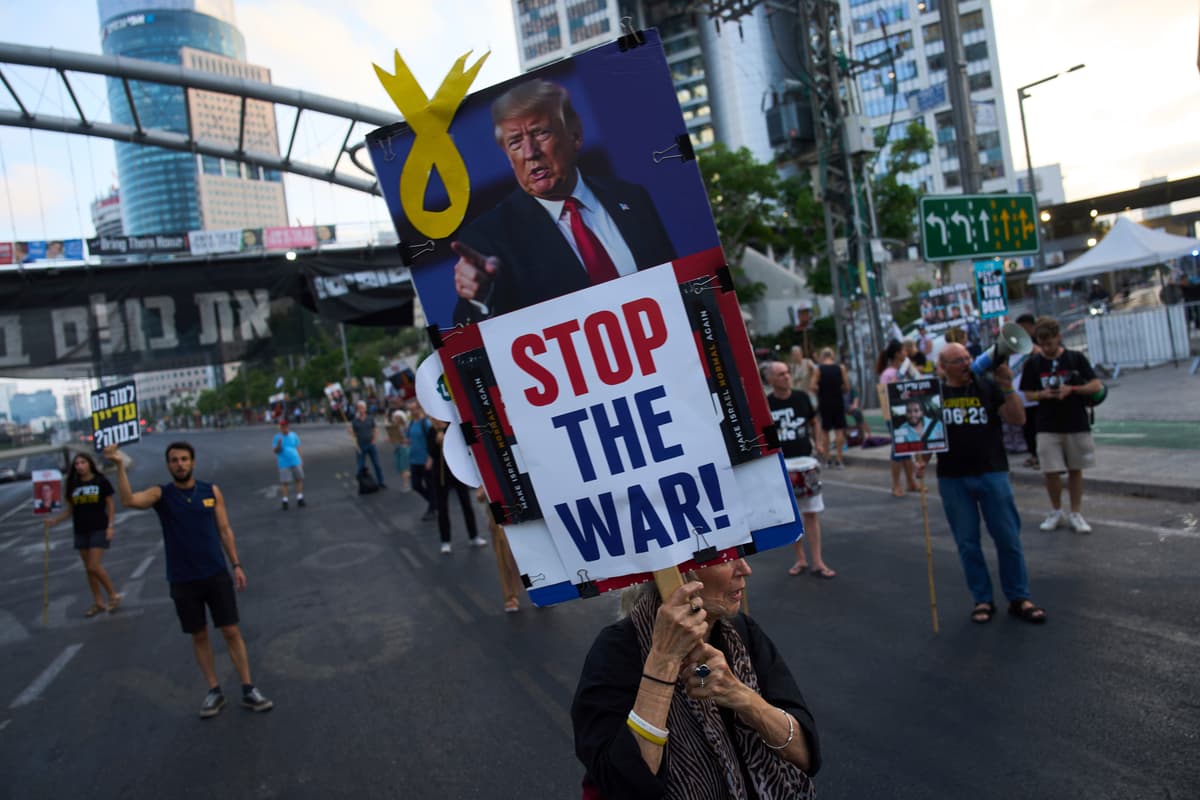The ongoing conflict in Gaza has placed the Abraham Accords at a critical crossroads, affecting the diplomatic landscape established by Israel, the United Arab Emirates, Bahrain, Sudan, and Morocco under the Trump administration. Nearly five years after their signing, these agreements aimed at normalizing relations between Israel and several Arab states now face significant challenges due to the current war, shifting public opinions, and the uncertain role of Saudi Arabia.
The Impact of the Gaza Conflict
Under the leadership of Prime Minister Benjamin Netanyahu and Crown Prince Mohammed bin Zayed of the United Arab Emirates, the accords accelerated diplomatic ties, trade agreements, and security cooperation. Despite ongoing political turmoil, Netanyahu’s government has attempted to maintain this momentum. However, the Gaza war poses the most significant test to the accords to date.
According to Iulia-Sabina Joja, a senior fellow at the Middle East Institute, “The war in Gaza has effectively suspended any expansion of the Abraham Accords. No country has been willing to sign the accords until a permanent ceasefire has been agreed on.” The hostilities between Israel and Hamas have created considerable anxiety among signatories, threatening to unravel the delicate peace achieved thus far.
While these countries have expressed concern over civilian casualties, they continue to affirm Israel’s right to self-defense. Jonathan Ruhe, Director of Foreign Policy at the Jewish Institute for National Security of America, noted, “Hamas and Iran hoped October 7 would thwart the accords by forcing pro-peace Arabs to choose between the Palestinians and Israel.” Current members of the accords remain committed, but any expansion is now a more complex diplomatic challenge.
Shifting Alliances and New Opportunities
The conflict has heightened unease among populations sympathetic to the Palestinian cause, potentially weakening support for normalization. Conversely, it has also underscored the necessity for Israel and its Arab partners to cooperate against extremist threats, a foundational aspect of the accords. The question remains whether these pragmatic alliances can endure the emotional and political repercussions of the conflict.
Israeli defense officials assert that the accords remain intact and may even expand, with new countries showing interest in joining. Bipartisan support from the United States Congress, as seen in recent arms sales targeting Abraham Accords partners, further reinforces this coalition. “While Iran, Yemen, Qatar, and other countries wanted to use the Gaza conflict to bury the Abraham Accords, behind the scenes, the Abraham Accords countries mediated and diluted the rejectionist reactions,” said Michael Rubin, a senior fellow at the American Enterprise Institute.
Former President Donald Trump continues to shape the regional diplomatic environment, advocating for a swift end to hostilities in Gaza, arguing that prolonged violence undermines the potential for expansion of the accords. He has hinted at the possible inclusion of more nations, suggesting a “Middle East shakeup” that could redefine alliances.
Pakistan’s Potential Role
Among the countries speculated to join the accords is Pakistan, traditionally an adversary of Israel. This potential shift could significantly affect the geopolitical landscape, offering Pakistan access to Israeli technology while countering Iranian influence. “Its geopolitical impact would be profound: recognition by what could soon be the world’s biggest Muslim population,” Ruhe explained.
Despite its historical stance against Israel, Islamabad’s potential alignment with the accords could be driven by a need for economic revitalization and a strategic pivot away from reliance on China. Khawaja Asif, Pakistan’s Defence Minister, recently indicated the government might consider recognizing Israel, contingent on national interests. However, skepticism remains due to Pakistan’s long-standing ties with militant groups and persistent accusations of supporting terrorism.
The Saudi Factor
Perhaps the most significant variable in the future of the Abraham Accords is Saudi Arabia. Despite not formally joining, the Kingdom has shown a willingness to engage with Israel. According to Ruhe, Riyadh’s approval would represent a monumental step, potentially encouraging other Muslim nations to follow suit. “Given the Kingdom’s wealth and central geographic position, it could supercharge regional trade and defense,” he noted.
Saudi Arabia’s cautious approach is influenced by domestic public opinion, the unresolved Palestinian issue, and its delicate relationship with Iran. Crown Prince Mohammed bin Salman is likely to weigh engagement against progress toward a Palestinian state and the cessation of violence in Gaza.
Joja emphasized that “a ceasefire agreement would unlock cooperation potential, fostering ties among countries such as Saudi Arabia and Pakistan.” Israel’s technological advancements and strong political ties with the United States position it as a key player in regional development.
Looking Forward
As the Gaza conflict strains regional relationships, there are still glimpses of potential diplomatic openings. Supporters of the Abraham Accords cite ongoing U.S. backing as a sign of hope, while critics highlight the increasing tensions and public backlash. The future stability of the accords hinges on the ability of leaders to navigate shifting alliances and the complicated emotional landscape of the current conflict.
Joja concluded, “A ceasefire in Gaza is a necessary condition for the development of the Abraham Accords. But a solution to Iran’s support of its proxies will be essential for long-term stability in the Middle East.” With the region in turmoil, the path forward remains uncertain, but the need for diplomatic efforts is more critical than ever.
